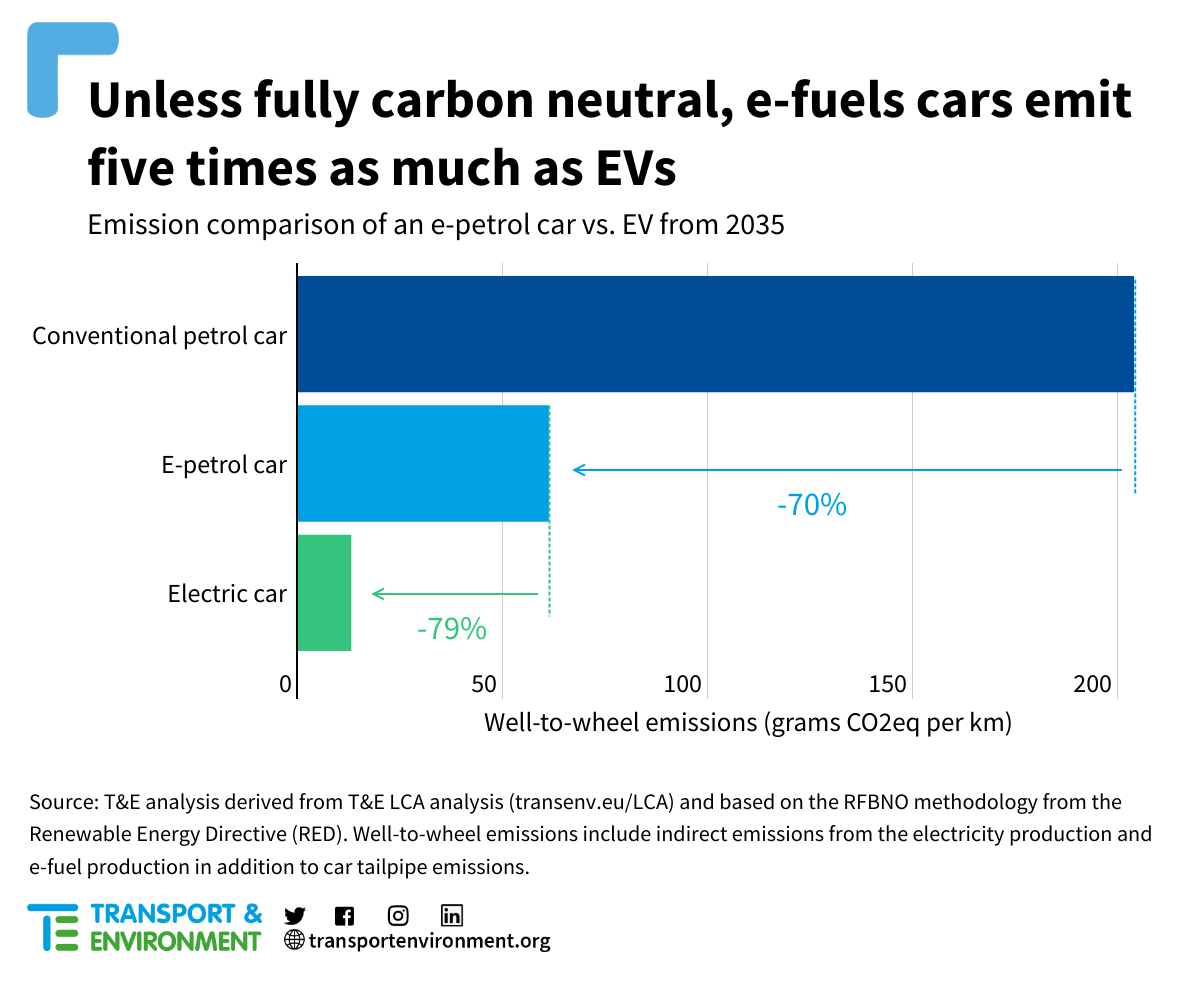In September 2023, the European Commission shared a draft text which defined a new category of vehicles running exclusively on synthetic fuels (or e-fuels). The central point of discussion is around the level of greenhouse gas (GHG) reduction that these e-fuels should achieve. Currently, e-fuels only need to meet a 70% GHG emissions reduction threshold compared to fossil fuels, as per the EU’s Renewable Energy Directive methodology (RED).
T&E analysis shows that e-petrol cars would emit 61 gCO2e/km in 2035 under the existing RED e-fuel system. This contrasts with EVs, which would only emit 13 gCO2/km when charged with electricity from the EU average grid in 2035. Under such a system, e-petrol cars would be considered CO2 neutral but would still emit around five times more CO2 emissions than equivalent EV models. Additionally, e-petrol cars emit air pollutants, including toxic nitrogen oxides (NOx) and carcinogenic particles.

In short, for the EU to respect the official agreement and decision of co-legislators, it is not possible to allow e-fuels that do not reach a 100% GHG reduction when used in cars. In particular a 70% reduction would disregard the existing agreement to only allow “vehicles running exclusively on CO2 neutral fuels”.
T&E recommendations:
- E-fuels allowed in cars should comply with a strict framework to certify and ensure RFNBOs deliver 100% CO2 reduction. Such rules should ensure that all of the electricity used in the process (production of the e-fuel and DAC) is 100% generated from additional renewable energy sources. The carbon used must also be from 100% direct air capture (DAC) to prevent any additional CO2 being released into the atmosphere. The RED RFNBO methodology also covers emissions from the transport and distribution of RFNBOs, which are a minimal part of total emissions (estimated at maximum 2%-3%). The methodology always ensures the feasibility of the achievement of 100% GHG emissions reduction. The preferred option is to use RFNBOs delivering high GHG savings or even carbon-neutral fuels for the transport of these carbon-neutral fuels (i.e. nearly CO2-neutral ships and electric trucks). It is also legally possible to offset any residual emissions from the transport and distribution of the e-fuel through the purchase of offsets from projects using carbon capture and storage (CCS).
- E-fuel cars should not be designated as zero-emission for the purposes of regulatory compliance given they still emit toxic air pollutants. Otherwise it would undermine efforts to reduce pollution and establish low- and zero-emission zones in European cities.


